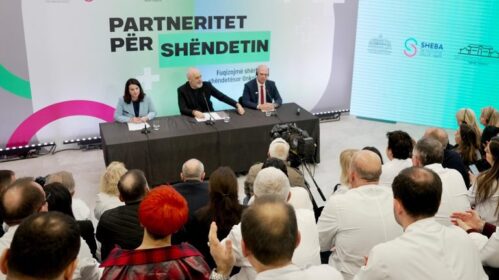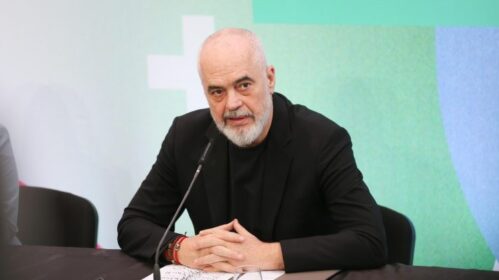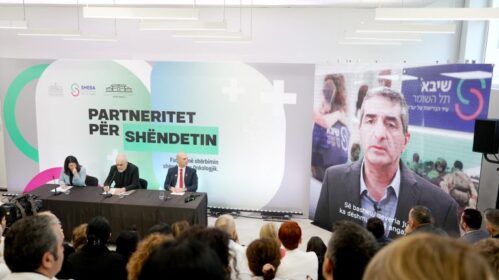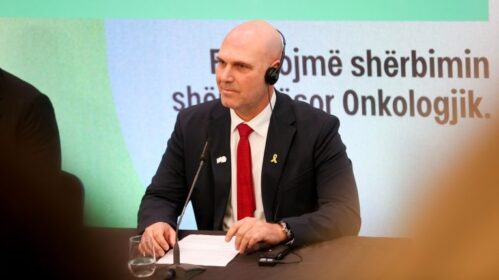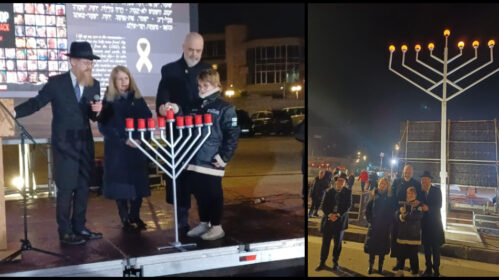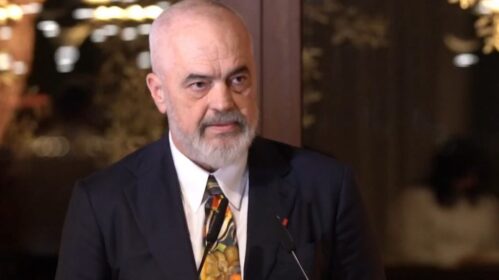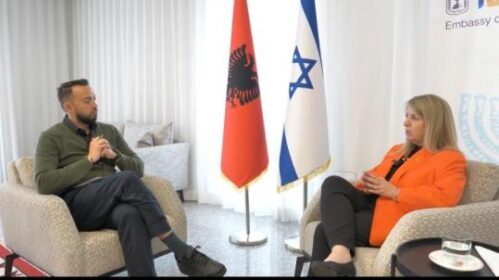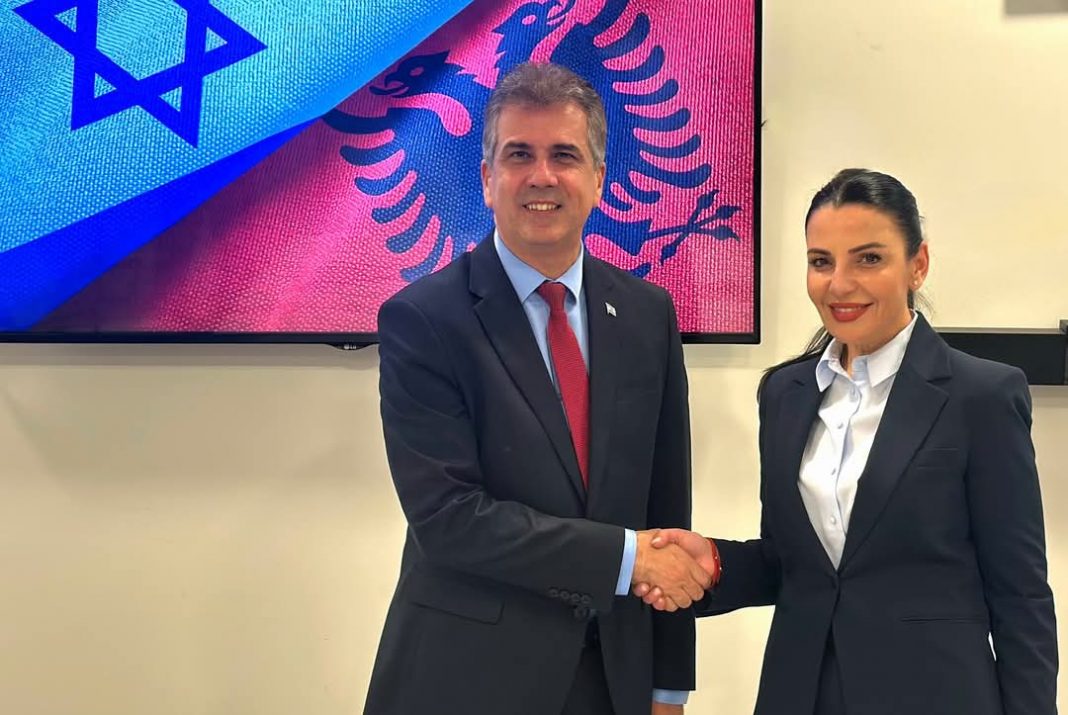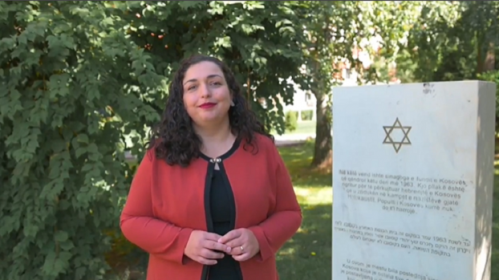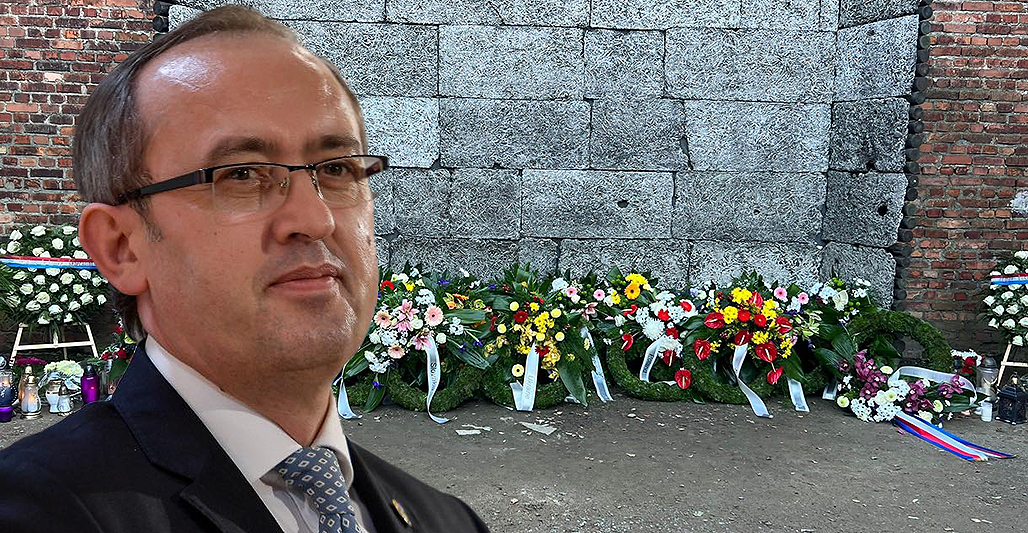Albania was the only country that had more Jews at the end of the Nazi period than at the beginning. They also saved foreign Jews who moved to Albania. This was the gist of the remarks of the Israeli Ambassador to Tirana, Boaz Rodkin in an event to commemorate the International Day of Remembrance for Victims of Holocaust organized on January 27, 2018 in Tirana.
Speaking to local government authorities, representatives of the diplomatic corps, friends of Israel and other guests before the screening of the movie ‘Aida’s Secrets’, Ambassador Rodkin highlighted the significance of the action taken by the General Assembly of the United Nations in New York in 2005 to establish January 27th as the International Day of Remembrance for the Victims of the Holocaust on the occasion of 60th anniversary of the liberation of the Auschwitz concentration camp. According to Ambassador Boaz, that has been a move to preserve and help the world remember the past.
In the meantime, Ambassador Rodkin brought again to the attention of the participants of the Tirana event the fact that Albania was the only country that had more Jews at the end of the Nazi period than at the beginning. Albanians also saved foreign Jews who moved to Albania, he said not sparing the gratitude of the Israeli people towards Albanians across their country.
The movie ‘Aida’s Secrets’, which was screened at the Academy of Film & Multimedia Marubi in Tirana, is a moving documentary, directed by Alon Schwarz and Shaul Schwarz and written by Alon Schwarz and Halil Efrat, on the discovery of records from WWII which sparked a family’s quest for answers as two brothers separated as babies reunite with each other and their elderly mother, who hid more from them than just each other. Izak Szewelwicz was born in the Bergen-Belsen displaced persons camp in 1945 and sent for adoption in Israel. Though Izak was able to form a relationship with his birth mother, his life was turned upside down years later when he located not only his birth certificate, but also another of a brother he never knew existed. Filmmakers Alon and Shaul Schwarz set out to find answers for Izak, uncovering questions of identity, resilience, and the plight of displaced persons as Izak and his brother Shep-both nearly 70 years old-finally meet in Canada before traveling to a nursing home in Quebec to introduce Shep to his elderly mother, Aida, for the first time.
In the meantime earlier last Friday, the Albanian Ministry for Europe and Foreign Affairs organized in the northern city of Shkodra an activity to launch the book ‘My Life under Nazi Occupation’ written by Mimi Kamhi Ergas Faraxhi.
The book has been translated into three languages – Albanian, Macedonian and English and dwells on a Jewish family which was saved by a Shkodra family during the Second World War. The daughter of Mimi Kamhi Ergas Faraxhi was given the name Drita by the family of Ahmet Shurdha in Shkodra.
Full of emotions Ms. Drita Kamhi Ergas Faraxhi did not hide her emotions while seeing Shkodra. “I remember this city like in dreams and I am so happy that I found it like it is,” she said in tears.
Albania’s foreign minister Ditmir Bushati said that “we do not show simply respect for the victims or the survivors through the remembrance of Holocaust, rather we lead the younger generation towards future challenges.”
Mr. Bushati expressed concern over growing anti-Semitism of certain extremist political forces in Europe today. “The challenges against the violent extremism, totalitarian ideologies and the misuse of religious beliefs for achieving certain political objectives are also dangerous,” he said.
The Israeli Ambassador, Rodkin pointed out that “we should do the utmost to fight intolerance wherever and in whatever form it appears.”
Polish Ambassador to Albania Karol Bachura, who was present at the screening of the movie ‘Aida’s Secrets’ in Tirana on January 27 wrote on that remarkable day in a comment of his in Albanian Daily News that “No Polish family was unaffected by the World War II’s death toll. Over 85 percent of Warsaw was destroyed in WW II. Out of the 6 million Poles that died in the WW II, half were Polish Jews, and from the 6 million Jews that vanished in the Holocaust, half were Polish Citizens (before World War II, 3,300,000 Jewish people lived in Poland. Poland was the center of the European Jewish world).”
Mr. Barucha recalled that the Warsaw Ghetto Uprising was the largest single revolt by Jews during World War II in the largest of all the Jewish ghettos in Nazi-occupied Europe with over 400,000 Jews imprisoned in an area of 3.4 sq. km.
http://www.albaniannews.com/index.php?idm=18214&mod=2
Galit Peleg: Interesim në rritje nga kompanitë izraelite për investime në Shqipëri!
Ambasadorja e Izraelit: Mund t’ju siguroj që së shpejti do të dëgjoni hebraisht në rrugët e Tiranës





